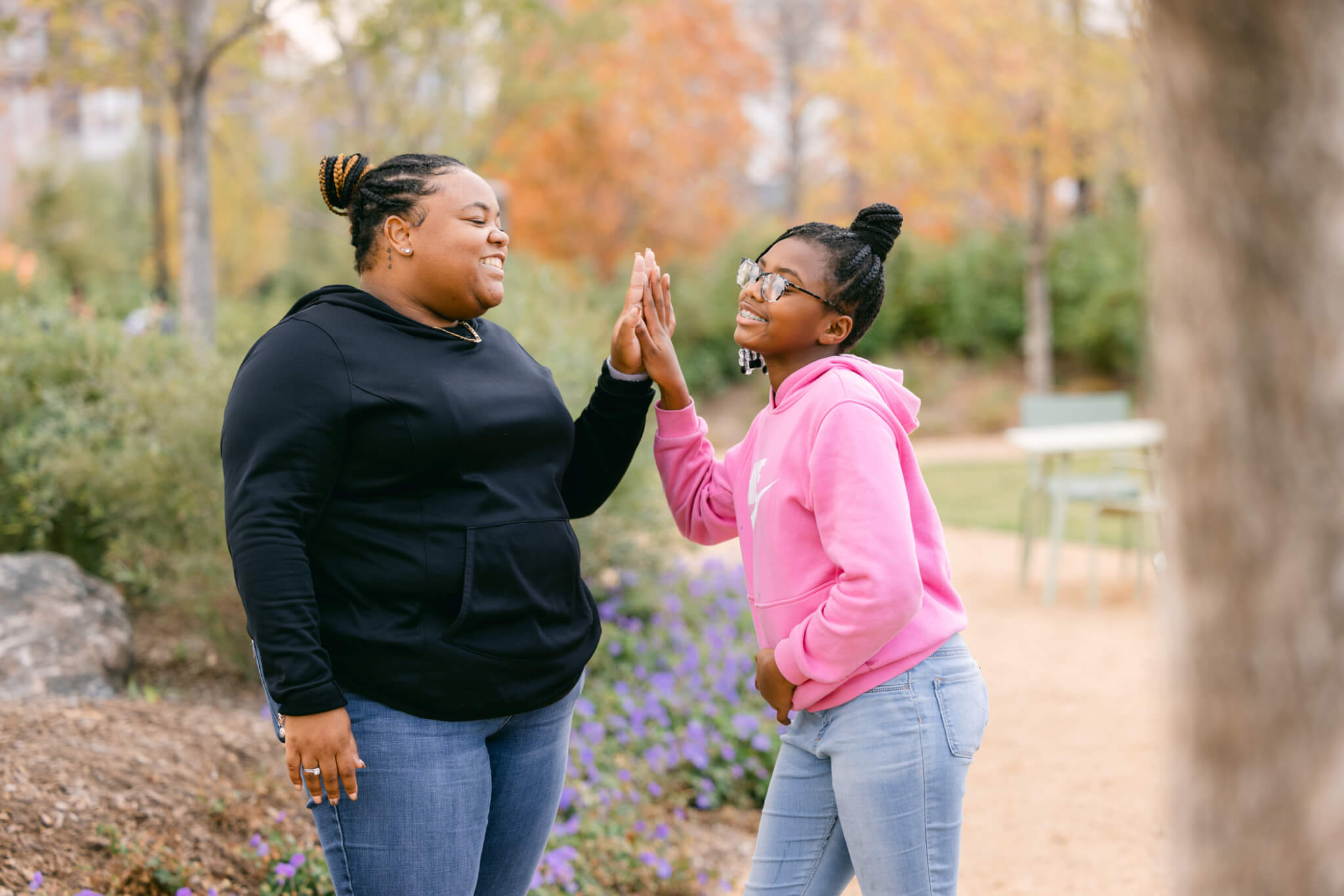
The Mentoring Effect
The Mentoring Effect
The Mentoring Effect is a compelling report informed by the first-ever nationally representative survey of young people on the topic of both informal and formal mentoring, as well as a literature and landscape review and insights from a variety of key leaders in business, philanthropy, government, and education. The report was commissioned by MENTOR with support from AT&T, and written by Civic Enterprises in partnership with Hart Research.
The findings of this report are consistent with a powerful mentoring effect as demonstrated by the life experiences of the young people surveyed and mentoring’s link to improved academic, social and economic prospects. This mentoring effect is growing and, if harnessed, it has the potential to help meet a range of national challenges and strengthen our communities and economy.
The survey found that 1.8 million young adults facing risks had been matched in mentoring relationships through mentoring programs while they were growing up. In the early 1990s an estimated 300,000 young people facing risks had a structured mentoring relationship. Another 4.1 million young adults facing risks had informal mentoring relationships with teachers, coaches, extended family members or neighbors while they were growing up.
Despite this positive trend, one in three young people surveyed did not have a mentor while they were growing up. Applying their experiences to the U.S. Census demographics for 8-18 year olds, it is projected that 16 million young people, including 9 million young people facing risks, will reach adulthood without connecting with a mentor of any kind.
The survey also showed that with each additional risk factor a young person experiences, the less likely he or she is to connect with an informal mentor. This finding suggests a systemic shift to leverage quality mentoring programs to introduce mentors to young people who face a greater number of risk factors is a powerful and necessary strategy.
Mentoring’s Connection to Aspirations and Outcomes
The experiences of the young people surveyed showed significant positive outcomes for those who had a mentor. Young people facing risks with mentors were more likely to aspire to attend and to enroll in college. They were more likely to report participating in sports and other extracurricular activities. They also were more likely to report taking on leadership roles in school and extracurricular activities and to regularly volunteer in their communities.
The Power of Relationships
To see our report on adult views on mentoring, click here.
One in three young people will grow up without a mentor outside their family. This is the mentoring gap in America.

Paths Forward
With input from industry stakeholders and thought leaders, the report outlines opportunities for the public, private and philanthropic sectors to systemically integrate mentoring as a key youth development strategy. The report describes a series of paths forward that would lead to a society where all young people have access to a quality mentoring relationship and the support they need to succeed in school, work, and life. The recommendations include strategies to:
-
Utilize mentoring to address national challenges When mentoring is integrated into research-based reforms and interventions it can strengthen efforts to reduce poverty, truancy, drug abuse and violence, while promoting healthy decision-making, positive behaviors and activities and academic achievement.
-
Ensure that young people most in need have a quality mentoring relationship Mentoring provides critical guidance to a young person on his or her path to success. But if one in three young people are reaching adulthood without a mentor, that means too many of these impactful relationships are being left to chance. We must develop and strengthen systems that identify young people most in need of a mentor and least likely to have a mentor, determine their mentoring needs and match them with quality mentors and services to meet those needs.
-
Expand local, state and federal public policies that advance quality mentoring Incorporate mentoring into public policies and programs that promote education, youth development, and community service, and raise and allocate funding to mentoring programs.
-
Ensure all structured mentoring is quality mentoring The broad interpretation of “mentoring” in public policies and funding programs can lead to inconsistent quality and uneven results. Through the National Quality Mentoring System, we are facilitating a structured, systematic process for evaluating a mentoring program’s implementation of the Elements of Effective Practice for Mentoring™.
-
Support and increase private sector engagement in mentoring The private sector is uniquely positioned to strengthen the mentoring effort, with financial and human resources available and a strong business interest in developing tomorrow’s workforce. Companies can offer employees paid time off to volunteer, financially support external mentoring programs and set corporate mentoring goals. In return, they can see increased employee productivity, improved morale and retention, and improved public image and community relations.
-
Facilitate connections between research and practice With the mentoring field’s increasingly robust research and practice base, it is important to strengthen the feedback loop between these two communities to more efficiently and effectively close the mentoring gap.
-
Explore innovations to close the mentoring gap Technology and youth-initiated mentoring are two examples of innovations that have the potential to dramatically increase the supply of mentors.
Influential Voices
Influential Voices on the Implications of The Mentoring Effect: Young People’s Perceptions on the Outcomes and Availability of Mentoring
Joe & Robin’s Story
Listen to Joe and Robin’s story about how the Mentoring Effect has improved both their lives.
Survey Responses from
18-21 year olds

My mentor came into my life and provided structure, did things with me that my parents couldn’t. He took me out to play ball, just sat and talked with me, and kept me from doing other things, like being in the streets.

My mentor attended the college I’m at now, and she took me out and informed me of how to get into college. She was always there to support me.




